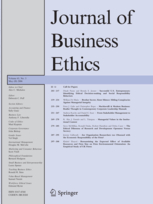
Research is "creative and systematic work undertaken to increase the stock of knowledge". It involves the collection, organization and analysis of evidence to increase understanding of a topic, characterized by a particular attentiveness to controlling sources of bias and error. These activities are characterized by accounting and controlling for biases. A research project may be an expansion on past work in the field. To test the validity of instruments, procedures, or experiments, research may replicate elements of prior projects or the project as a whole.
The ethics of technology is a sub-field of ethics addressing the ethical questions specific to the Technology Age, the transitional shift in society wherein personal computers and subsequent devices provide for the quick and easy transfer of information. Technology ethics is the application of ethical thinking to the growing concerns of technology as new technologies continue to rise in prominence.
Internet studies is an interdisciplinary field studying the social, psychological, political, technical, cultural and other dimensions of the Internet and associated information and communication technologies. The human aspects of the Internet are a subject of focus in this field. While that may be facilitated by the underlying technology of the Internet, the focus of study is often less on the technology itself than on the social circumstances that technology creates or influences.
Digital anthropology is the anthropological study of the relationship between humans and digital-era technology. The field is new, and thus has a variety of names with a variety of emphases. These include techno-anthropology, digital ethnography, cyberanthropology, and virtual anthropology.
Internet research ethics involves the research ethics of social science, humanities, and scientific research carried out via the Internet.
Online ethnography is an online research method that adapts ethnographic methods to the study of the communities and cultures created through computer-mediated social interaction. As modifications of the term ethnography, cyber-ethnography, online ethnography and virtual ethnography designate particular variations regarding the conduct of online fieldwork that adapts ethnographic methodology. There is no canonical approach to cyber-ethnography that prescribes how ethnography is adapted to the online setting. Instead individual researchers are left to specify their own adaptations. Netnography is another form of online ethnography or cyber-ethnography with more specific sets of guidelines and rules, and a common multidisciplinary base of literature and scholars. This article is not about a particular neologism, but the general application of ethnographic methods to online fieldwork as practiced by anthropologists, sociologists, and other scholars.

Luciano Floridi is an Italian and British philosopher. He is the Director of the Digital Ethics Center at the Yale University. He is also a Professor of Sociology of Culture and Communication at the University of Bologna, Department of Legal Studies, where he is the director of the Centre for Digital Ethics. He is adjunct professor, Department of Economics, American University, Washington D.C. He is married to the neuroscientist Anna Christina Nobre.
The Association of Internet Researchers (AoIR) is a learned society dedicated to the advancement of the transdisciplinary field of Internet studies. Founded in 1999, it is an international, member-based support network promoting critical and scholarly Internet research, independent from traditional disciplines and existing across academic borders.

Donna L. Dickenson is an American philosopher who specializes in medical ethics. She is Emeritus Professor of Medical Ethics and Humanities at the University of London, fellow of the Ethox and HeLEX Centres at the University of Oxford, and visiting fellow at the Centre for Ethics in Medicine, University of Bristol.
Unobtrusive research is a method of data collection used primarily in the social sciences. The term "unobtrusive measures" was first coined by Webb, Campbell, Schwartz, & Sechrest in a 1966 book titled Unobtrusive Measures: nonreactive research in the social sciences. The authors described methodologies which do not involve direct elicitation of data from the research subjects. Unobtrusive measures are contrasted with interviews and questionnaires, in that they try to find indirect ways to obtain the necessary data. The unobtrusive approach often seeks unusual data sources, such as garbage, graffiti and obituaries, as well as more conventional ones such as published statistics.

Cyber ethics is the philosophic study of ethics pertaining to computers, encompassing user behavior and what computers are programmed to do, and how this affects individuals and society. For years, various governments have enacted regulations while organizations have defined policies about cyberethics.

The sociology of the Internet involves the application of sociological theory and method to the Internet as a source of information and communication. The overlapping field of digital sociology focuses on understanding the use of digital media as part of everyday life, and how these various technologies contribute to patterns of human behavior, social relationships, and concepts of the self. Sociologists are concerned with the social implications of the technology; new social networks, virtual communities and ways of interaction that have arisen, as well as issues related to cyber crime.

The Journal of Business Ethics is a peer-reviewed academic journal published by Springer Nature B.V. The Journal of Business Ethics is one of the journals used by the Financial Times for in compiling the Business Schools research rank.
Netnography is a specific type of qualitative social media research. It adapts the methods of ethnography to understand social interaction in contemporary digital communications contexts. Netnography is a specific set of research practices related to data collection, analysis, research ethics, and representation, rooted in participant observation. In netnography, a significant amount of the data originates in and manifests through the digital traces of naturally occurring public conversations recorded by contemporary communications networks. Netnography uses these conversations as data. It is an interpretive research method that adapts the traditional, in-person participant observation techniques of anthropology to the study of interactions and experiences manifesting through digital communications.
John Weckert is an Australian philosopher who has been an influential figure in, and substantial contributor to the field of information and computer ethics. He has published many books and journal articles outlining his research in this field.
An online interview is an online research method conducted using computer-mediated communication (CMC), such as instant messaging, email, or video. Online interviews require different ethical considerations, sampling and rapport than practices found in traditional face-to-face (F2F) interviews. Online interviews are separated into synchronous online interviews, for example via online chat which happen in 'real time' online and asynchronous online interviews, for example via email conducted in non-real time. Some authors discuss online interviews in relation to online focus groups whereas others look at online interviews as separate research methods. This article will only discuss online interviews.

Active users is a software performance metric that is commonly used to measure the level of engagement for a particular software product or object, by quantifying the number of active interactions from users or visitors within a relevant range of time.
The UK Data Service is the largest digital repository for quantitative and qualitative social science and humanities research data in the United Kingdom. The organisation is funded by the UK government through the Economic and Social Research Council and is led by the UK Data Archive at the University of Essex, in partnership with other universities.

Annette Markham is an American academic, Professor at RMIT School of Media and Communication and Professor MSO of Information Studies at Aarhus University, Denmark. She is Director of RMIT's Digital Ethnography Research Centre. She has served on the executive committee of the Association of Internet Researchers since 2013. She has published research in the area of Internet studies, digital identity, social interaction, innovative qualitative methods for social research, and Internet research ethics.
Digital civics refers to a range of ethical and responsible civic behaviours, citizenship, or democratic engagement in the digital realm. The term itself is still establishing currency.







